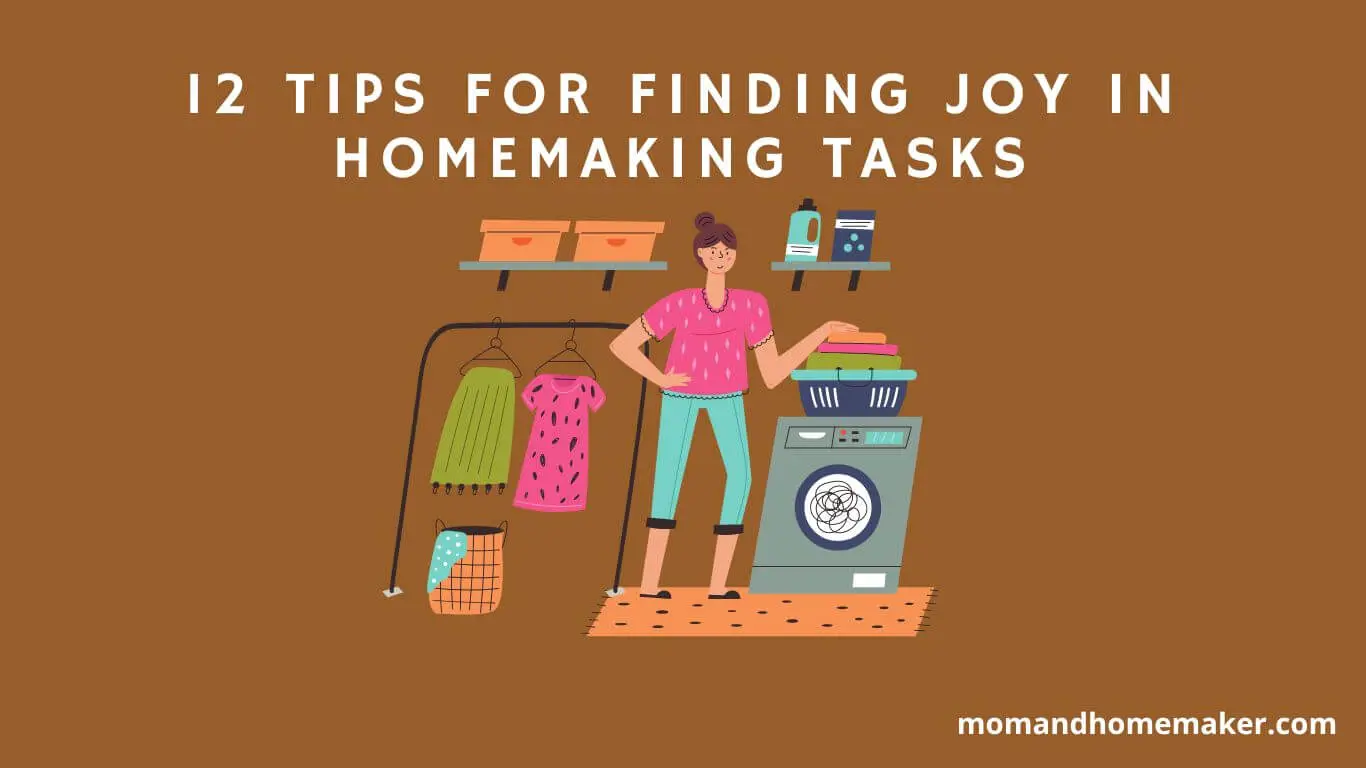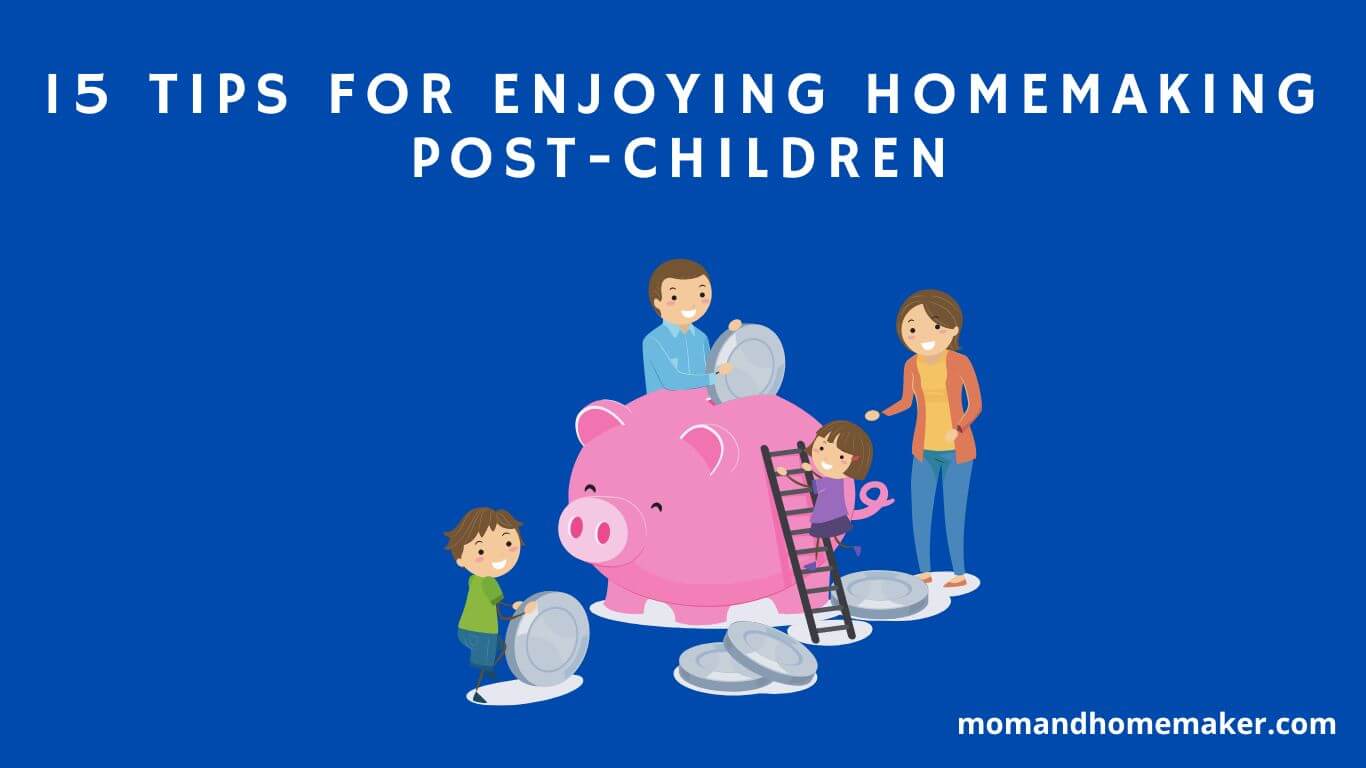When you think of a stage mom, picture a director who never knows when to stop filming. As the focus shifts from the child to the parent, boundaries blur. This role’s complexities can deeply impact a child’s development.
Let’s look into the layers of an overbearing stage mom and the consequences it brings for both the child and the parent.
Definition of an Overbearing Stage Mom
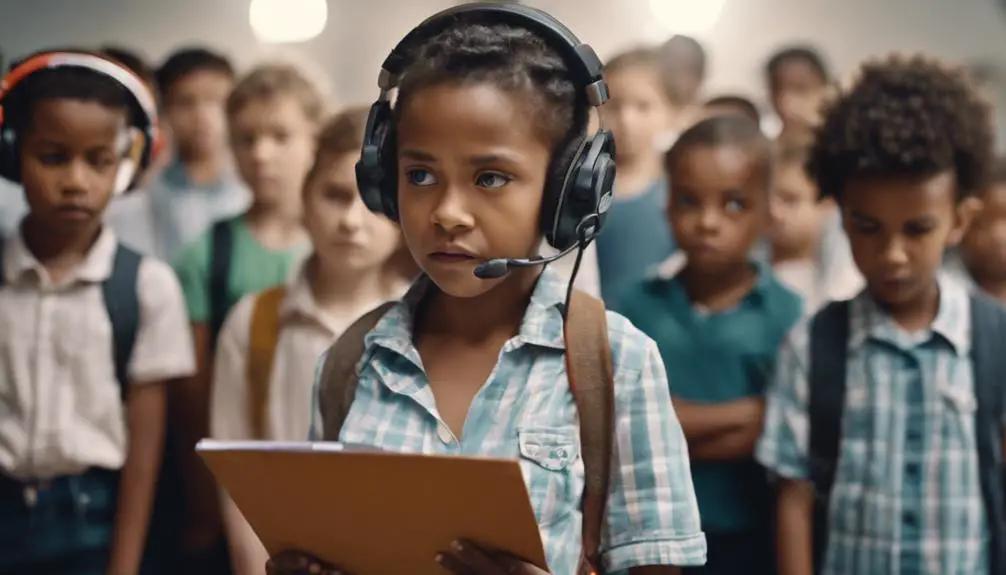
An overbearing stage mom is a parent who excessively controls and influences their child’s activities and decisions within the performing arts industry. While parental guidance and support are crucial, an overbearing stage mom often goes too far by imposing their own desires on their child’s stage presence.
This behavior can lead to a lack of respect for the child’s autonomy, hindering their ability to grow and develop independently. The pressure to perform at the parent’s standards can create immense performance pressure on the child, impacting their enjoyment of the arts and potentially leading to burnout.
Family dynamics also play a significant role in the development of an overbearing stage mom. Issues such as parental expectations, competitiveness, or unfulfilled dreams can contribute to this behavior.
Establishing healthy parental boundaries is essential to ensure the child’s well-being and artistic growth are prioritized. It’s important to strike a balance between support and control, allowing the child to explore their passion for the performing arts while maintaining a sense of freedom and joy in their craft.
Signs to Look Out For
Keep an eye on your interactions with your child in the performing arts world for these potential warning signs. It’s crucial to be aware of behaviors that may indicate you’re becoming an overbearing stage mom. Here are some red flags to watch out for:
- Constant Criticism: If you frequently point out your child’s flaws instead of celebrating their achievements, it could signal harmful dynamics.
- Disregarding Your Child’s Desires: Pushing your child into activities they don’t enjoy or insisting they pursue a specific role can create parental pressure.
- Excessive Involvement: Micromanaging every aspect of your child’s performance or constantly interfering in their interactions with others can lead to stressful situations.
- Obsessive Behavior: If your own emotions are too tied to your child’s success or failure in the performing arts, it may be time to consider intervention strategies.
Impact on Child’s Well-being

Stage moms who are excessively controlling can harm your child’s well-being in the performing arts industry. It’s vital to prioritize your child’s mental health and self-esteem above all else. The constant pressure and unrealistic expectations from an overbearing stage mom can result in performance anxiety, impacting your child’s ability to enjoy and succeed in their art.
To prevent burnout, it’s crucial to establish healthy boundaries. Encourage your child to openly communicate with you about their emotions and experiences in the performing arts. Help them realize that their value isn’t solely determined by their performances.
Support your child in finding a balance between their love for the arts and other aspects of their life. Promote activities outside of the performing arts to encourage a well-rounded lifestyle.
By creating a supportive environment and highlighting the significance of self-care, you can assist your child in navigating the challenges of the performing arts industry while safeguarding their well-being.
Relationship With Performing Arts
Developing a strong and positive connection with the performing arts involves nurturing a genuine love and respect for the craft in your child. Encourage them to explore their creativity and cultivate their talents in a supportive setting, fostering a fulfilling journey in the performing arts.
Here are some essential aspects to focus on:
- Skill development: Support your child’s growth and progress in their chosen art form by providing opportunities for training and improvement.
- Managing performance anxiety: Address any concerns or worries your child may have about performing by offering guidance and reassurance.
- Encouraging creative expression: Motivate your child to express themselves authentically through their performances, allowing their unique voice to shine.
- Building self-confidence: Assist your child in developing confidence in their abilities, reinforcing their belief in themselves as performers.
Common Behaviors Displayed

When it comes to supporting your child in their performing arts journey, it’s important to find a balance between encouragement and avoiding excessive involvement. Some parents may struggle with control issues, feeling the need to oversee every aspect of their child’s performance. This behavior can stem from a competitive mindset, where they want their child to stand out above others at any cost.
Micromanaging is a common trait among overbearing stage parents. They tend to insert themselves too deeply into their child’s rehearsals, costume choices, and interactions with other performers.
Setting unrealistic expectations and putting too much pressure on their child can lead to performance anxiety and diminish their enjoyment of the arts.
Parents must prioritize nurturing their child’s love for the performing arts over seeking personal validation or success through their child’s achievements.
By fostering a supportive and encouraging environment, children can thrive and truly enjoy their experiences on stage.
Motivations Behind Their Actions
In the world behind the scenes, the motivations that drive overbearing stage moms often stem from a deep desire for fulfillment through their child’s success. Here are some reasons behind their actions:
- Parental Expectations: These moms may have high hopes for their children, wanting them to excel and achieve the dreams they couldn’t fulfill themselves.
- Competitive Nature: Their drive to compete pushes them to ensure their child stands out, sometimes at the expense of their child’s well-being.
- Personal Fulfillment: They seek validation and satisfaction through their child’s accomplishments, finding a sense of worth in their success.
- Fear of Failure: Deep-seated anxieties about their child not succeeding can lead to extreme behaviors to prevent what they perceive as failure.
A mix of parental expectations, competitive nature, personal fulfillment, fear of failure, and sometimes unrealistic goals can fuel the actions of overbearing stage moms. Understanding these motivations is key to effectively addressing and navigating their behavior.
Handling an Overbearing Stage Mom

Dealing with an overbearing stage mom requires setting boundaries early on to maintain a healthy dynamic and protect both you and your child’s well-being.
Parental guidance and clear boundaries are crucial in managing this relationship. Effective communication and support are key to creating a positive environment for nurturing talent while maintaining balance.
It’s important to manage expectations and prioritize self-care to prevent burnout and maintain a sustainable routine. Respecting your child’s autonomy is vital for their growth and development in the performing arts. Remember, the journey is just as important as the end goal.
Support Systems for Children
Building a strong foundation for your child’s growth in the performing arts requires a reliable support system that nurtures their talents and well-being. Here are four essential elements to consider:
- Parental guidance: Your guidance as a parent plays a crucial role in your child’s development. Offer encouragement, set achievable goals, and create a safe space for them to explore their passions.
- Peer support: Encourage your child to connect with peers who share their interests. Positive relationships with other young performers can boost confidence and foster a sense of community.
- Mental health: Make your child’s mental well-being a priority. Maintain open communication, watch for signs of stress or burnout, and seek professional help if necessary.
- Self-expression: Support your child’s journey of self-discovery through the arts. Encourage them to freely express their thoughts, emotions, and creativity.
Emotional Toll on the Child
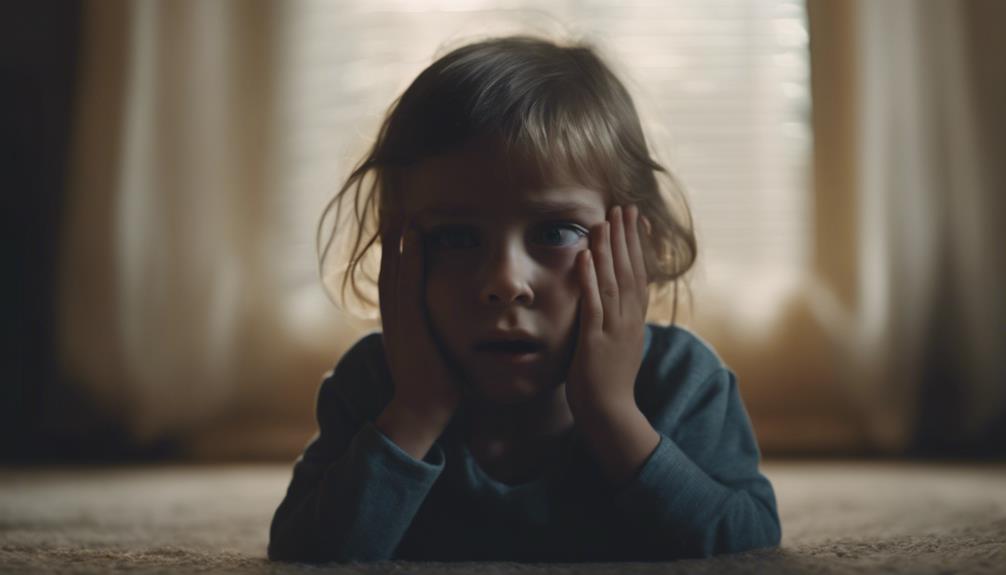
Entering the world of performing arts can have a significant emotional impact on your child, affecting their mental well-being and overall happiness. The pressure from parents to excel and meet high expectations can lead to childhood trauma that can harm their mental health and self-esteem.
Feeling the constant need to impress or live up to their parents’ standards can create anxiety and stress for young performers. This pressure may result in feelings of inadequacy, fear of failure, or a distorted self-image.
Children with overbearing stage moms may struggle to find healthy ways to cope with the emotional strain. It’s important for parents to recognize signs of distress in their children and offer support and guidance.
Encouraging open communication, fostering a positive environment, and finding a balance between passion for performing and external pressures can help reduce the negative impact on their emotional well-being. Remember, your child’s mental health and happiness should always come first.
Balancing Passion With Pressure
Striking a balance between your child’s love for performing and the external pressures they face can be quite challenging. To nurture their passion for the stage while safeguarding their well-being, consider the following points:
- Encourage Passion: Support your child’s interest in performing without overwhelming them with unrealistic expectations.
- Parental Support: Stay involved in your child’s journey, offering guidance and backing their aspirations without imposing your dreams on them.
- Set Boundaries: Establish clear limits to protect your child from stress and burnout, allowing them to enjoy their passion in a healthy way.
- Create a Supportive Environment: Foster a safe and nurturing space where your child can explore their talents and freely express themselves, promoting their emotional wellness.
Overcoming Negative Influences
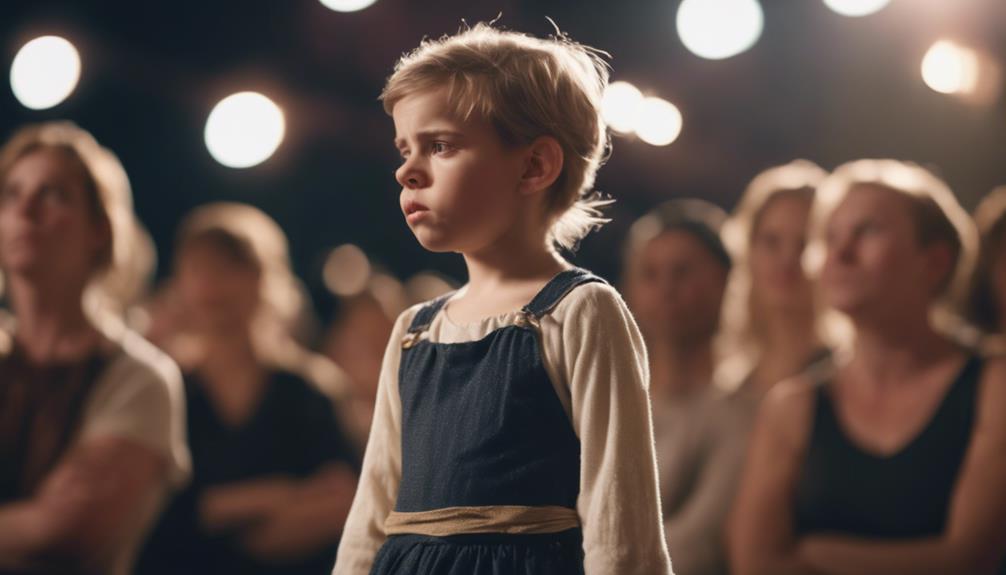
To support your child’s passion for performing, it’s important to shield them from negative influences that can hinder their growth. Encourage positivity by praising their efforts and achievements, boosting their self-esteem and motivation.
Setting clear boundaries is essential to protect them from excessive pressure or unrealistic expectations, creating a safe space for them to explore their talents comfortably.
Building your child’s confidence is crucial for navigating the demands of performing. Help them believe in their abilities and embrace their unique talents. If negative influences have impacted their well-being, consider therapy as a valuable support system to help them process emotions and develop coping strategies.
Ensuring balance in your child’s life is vital for their overall well-being. Allow time for relaxation, hobbies, and socializing outside of their performance commitments. This balance will help your child approach their passion with joy and resilience.
Boundaries and Communication
Establishing clear boundaries and fostering open communication are crucial aspects in supporting your child’s passion for performing. To navigate this journey effectively, consider the following key points:
- Setting Healthy Boundaries: It’s important to set limits on involvement and respect your child’s autonomy. This helps them develop independence and confidence.
- Encouraging Effective Communication: Foster honest and respectful dialogue that allows your child to express their feelings, concerns, and aspirations. This strengthens the bond between you and your child.
- Understanding Parent-Child Dynamics: Recognizing the unique dynamics between you and your child is essential in creating a supportive environment that nurtures their talent without overwhelming pressure.
- Building Trust: Consistency, reliability, and mutual respect are key in building trust. This foundation establishes a positive relationship where your child feels safe to explore their passion.
Community Awareness and Education

Raising awareness in the community and educating people about the challenges and rewards of supporting young performers can help create a more understanding and well-informed society. Parental involvement is important for nurturing a child’s talent, but it should be balanced with respect for the child’s independence.
By teaching communities about the significance of setting healthy boundaries, individuals can learn how to offer support without being intrusive. It’s crucial to establish a supportive environment where young performers feel comfortable expressing themselves and developing.
Encouragement and constructive feedback from community members play a vital role in boosting a child’s confidence and skills. By focusing on the child’s progress rather than just the end result, people can contribute positively to their development.
Promoting empathy and understanding can assist parents in effectively supporting young performers. Through education and awareness, we can build a culture that values young talent while prioritizing the well-being and growth of each child.
Recognizing Healthy Supportive Parenting
Understanding the significance of creating a supportive and nurturing environment for young performers is crucial in recognizing healthy parenting practices. As a parent actively involved in your child’s journey in the performing arts, it’s vital to find a balance between being present and fostering independence.
Here are some key elements of healthy supportive parenting to consider:
- Parental involvement with a healthy balance: Engage with your child’s interests and activities while respecting their autonomy.
- Encouragement over control: Provide encouragement and guidance instead of exerting strict control over their choices and actions.
- Positive reinforcement and constructive feedback: Celebrate their accomplishments and offer constructive criticism to aid in their growth and learning.
- Nurturing creativity and promoting independence: Encourage creativity and allow your child the space to explore their talents independently.
Long-term Effects on Child’s Development

When considering your child’s growth in the performing arts, it’s important to think about the lasting effects of their experiences. Child psychology plays a key role in shaping how kids see themselves and their talents.
Parental influence can greatly impact a child’s mental and emotional well-being, especially in a competitive industry like entertainment. Pushy stage parents may unintentionally lower a child’s self-esteem, impacting their confidence and self-worth. These effects can have a long-term impact on a child’s mental health and behavior.
Understanding children’s development, parental guidance, self-esteem, and coping strategies are crucial components in nurturing a healthy environment for young performers.
Conclusion
Recognizing the signs of an overbearing stage mom is crucial for the well-being of children involved in performing arts.
By addressing these behaviors, we can create a nurturing environment for young performers to thrive in and develop their skills.







